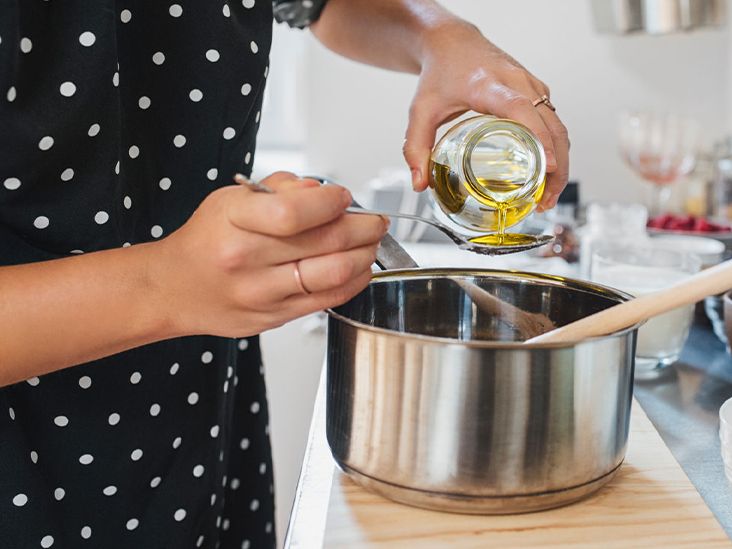7 Signs Your Peanut Oil Has Gone Bad
Written By James Morgan
Peanut oil is a favorite among barbecue enthusiasts for its high smoke point and rich flavor. But like all cooking oils, peanut oil has a shelf life. Knowing how to tell if peanut oil has gone bad is crucial for maintaining the quality and safety of your culinary creations. In this guide, we'll explore the tell-tale signs that your peanut oil is no longer fit for use.

How to Tell If Peanut Oil Has Gone Bad
1. Off Smell
Fresh peanut oil has a mild, nutty aroma. If your oil smells sour, pungent, or like old paint, it's a sure sign that it has gone bad. Oils oxidize over time, leading to the production of unpleasant odors that signal spoilage.
Best Cooking Tools & Kitchen Essentials
2. Change in Color
Good peanut oil is typically a clear, light golden color. If you notice it turning darker, cloudy, or murky, this can indicate contamination or degradation, meaning the oil is no longer safe to use.
3. Unusual Taste
A rancid or off taste is another indicator that your peanut oil has spoiled. Fresh peanut oil enhances the flavors of your dishes without any unpleasant aftertaste. If your food tastes bitter or metallic, it's time to get a new bottle of oil.
4. Sediment at the Bottom
Over time, impurities can settle at the bottom of the bottle. While some sediment is normal in unrefined oils, excessive build-up can signal that the oil has been stored too long or improperly, leading to deterioration.
5. Expiration Date
Always check the expiration date on the bottle. Using peanut oil past its best-by date increases the risk of spoilage. Even if the oil looks and smells fine, the quality will have diminished, affecting the taste and safety.
6. Storage Conditions
Peanut oil should be stored in a cool, dark place. Exposure to light and heat can accelerate oxidation. If your oil has been stored wrongfor example, near the stove or in direct sunlightit might go bad faster.
7. Sticky Residue
Sticky residue around the cap or bottle neck can be a sign of spoilage. This is usually due to the oil reacting with oxygen, leading to polymerization which leaves a tacky film.

Why It's Important to Avoid Bad Peanut Oil
Using spoiled peanut oil poses health risks and can ruin the taste of your food. Rancid oils contain harmful free radicals that can cause digestive issues and other health problems. Keeping a keen eye on the quality of your peanut oil ensures every meal you prepare is both delicious and safe.

Tips for Extending the Shelf Life of Peanut Oil
1. Store Properly
Keep your peanut oil in a sealed, dark container. A pantry or a cupboard is ideal to avoid exposure to light and heat.
2. Refrigeration
If you don't use peanut oil often, consider storing it in the fridge. This can significantly extend its shelf life by slowing down oxidation.
3. Use Clean Tools
Always use clean, dry utensils when handling peanut oil. Water and food particles can accelerate spoilage.
4. Buy in Small Quantities
Purchase peanut oil in quantities you can use within a few months. This minimizes the risk of having old oil going bad in your pantry.
Must‑Have Kitchen Gadgets & Cooking Accessories
FAQs About Peanut Oil
1. Can you cook with expired peanut oil?
It's best not to use expired peanut oil for cooking, as its quality and safety can't be guaranteed.
2. How long does peanut oil last once opened?
Once opened, peanut oil lasts for about six months if stored properly.
3. Can you use peanut oil that has turned cloudy?
Cloudy peanut oil is usually an indicator of spoilage. It's safer to discard it.
4. What should I do with spoiled peanut oil?
Dispose of spoiled peanut oil by pouring it into a sealed, non-recyclable container and throwing it in the trash. Do not pour it down the drain to avoid clogging.
5. Can peanut oil be reused after frying?
Yes, peanut oil can be reused after frying, but it's important to strain it and store it properly to avoid spoilage.
6. Is there a healthier alternative to peanut oil?
Yes, there are several alternatives such as olive oil, avocado oil, and coconut oil that can be healthier depending on how you use them.
Conclusion
Making sure your peanut oil is fresh is key to delicious and safe cooking. Awareness of spoilage signs like off-smells, color changes, and sediment can help maintain the quality of your oil. Store it properly, use clean handling methods, and check the expiration dates regularly. By following these tips, you'll always have fresh, high-quality oil on hand to elevate your barbecue dishes.
For more tips on proper oil usage and oil recommendations, check out our other articles. Keep grilling, keep enjoying your meals, and keep your food safe!
As an Amazon Associate, I earn from qualifying purchases.



